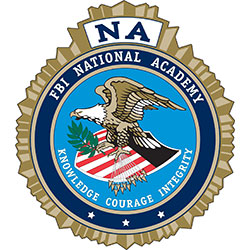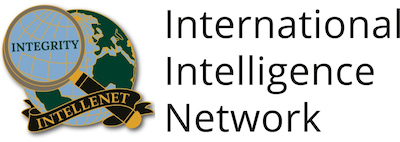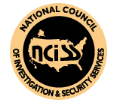
Private investigators (PIs) are often called upon to uncover information that may otherwise remain hidden. Among the different strategies PIs use to obtain information, surveillance is one of the most popular methods.
But did you know that different types of surveillance techniques are used in various scenarios?
Surveillance takes different forms depending on the objectives of the investigation. These are the major types of private investigator surveillance techniques, the investigations that typically require them, and why it’s a vital part of the PI’s work.
What Are the Different Types of Surveillance Techniques?
Private investigator surveillance techniques involve observing a subject to collect information about their activities, behavior, and interactions. Here are the different types of surveillance techniques PIs use:
1. Physical Surveillance
This is one of the oldest and most common forms of surveillance. It involves observing a person’s activities in real time by following them or staking out a location. This type of surveillance is often used in cases where visual evidence is critical — especially in court cases where undeniable proof is required for favorable results.
For example, a PI might be hired by someone who suspects their partner to be unfaithful to document their whereabouts. Insurance companies may also ask PIs to follow an individual in a workers’ compensation case to confirm the validity of their insurance claims. This method requires discretion, excellent observational skills, and a lot of patience.
2. Electronic Surveillance
Electronic surveillance involves monitoring a subject’s actions using devices like cameras and GPS trackers. This form of surveillance is particularly useful for long-term investigations where constant physical observation isn’t feasible.
If you need to use electronic surveillance on a subject, it’s strongly recommended that you hire a PI. Every day citizens can be charged with stalking or data privacy crimes for planting a GPS tracker or recording a person without their consent. Aside from having state-of-the-art surveillance equipment, PIs in South Carolina are regulated by law enforcement, which gives them more privileges to conduct better electronic surveillance.
3. Covert Surveillance
Covert surveillance is designed to be undetectable by the subject. This type of surveillance often combines physical and electronic methods to gather information discreetly. Covert surveillance is crucial in investigations where subjects are likely to alter their behavior if they suspect they are being watched.
For example, during a corporate investigation, a PI might use hidden cameras or conduct unnoticeable stakeouts to monitor employees suspected of misconduct. Another example is in family law cases, where covert surveillance may be used to discreetly document behaviors that impact child custody decisions.
4. Cyber Surveillance
Cyber surveillance involves monitoring online activities, such as social media usage, emails, or website visits. While there are limitations due to data privacy, it is possible to uncover a person’s digital footprint and behavior if the subject has publicly available information. If the subject has a public social media account or engages with public posts, PIs have the observation and research skills to uncover a person’s behavior, online network, and physical location.
Cyber surveillance is useful in many situations. If you’re a victim of cyberbullying or online scams, PIs can access resources that help uncover anonymous accounts. If you’re searching for someone who may or may not be actively hiding, PIs can deduce info based on their available content. In criminal defense cases, cyber surveillance can be used to verify or refute alibis by analyzing digital timestamps or tracking online interactions.
Why Is Private Investigator Surveillance a Vital Part of an Investigation?
Through private investigator surveillance techniques, PIs can assist in commercial, legal, and personal cases through the following:
Evidence Collection
PI surveillance provides tangible evidence, such as photographs, videos, and documented observations. These can be used in court cases, negotiations, and other situations that require hard evidence.
For example, if you believe your ex-spouse is under-declaring their income to minimize their alimony payments, providing documents proving undeclared income can help give you a fair settlement. If you are being harassed, documenting instances of stalking or threatening behavior can help you with getting a restraining order.
Unbiased Observations
Witnesses can have personal biases that can impact court proceedings. Private surveillance offers objective data based on real-time activities. There is minimal room for interpretation or biases when faced with hard evidence.
For example, if a suspect is accused of being at a specific location, surveillance can independently confirm or refute the statement without subjective influence. Another scenario is during workplace investigations, where surveillance can validate allegations of employee misconduct without relying on potentially biased co-worker testimony.
Validation of Claims
Whether verifying an alibi, confirming suspicions of infidelity, or exposing fraudulent activity, surveillance helps validate or refute claims with concrete proof.
For example, in divorce cases, spouses and their witnesses can make exaggerated claims about the other’s behavior; surveillance evidence can refute or prove these claims. Surveillance could confirm whether their injuries are as severe as reported in personal injury cases.
Safety and Efficiency
Advanced surveillance tools allow PIs to gather information from a safe distance, reducing the risk of confrontation and ensuring efficiency in their investigations. PIs also have more privileges when it comes to recording evidence, so you can avoid getting into legal trouble for stalking or violating data privacy laws.
PI’s have access to GPS trackers to monitor vehicle movements, ensuring efficiency in tracking subjects without direct physical observation.
Discretion
Professional surveillance is conducted without tipping off the subject. This ensures that the investigation remains effective and that subjects don’t change their regular behaviors to avoid suspicion or getting caught.
Private investigator surveillance is particularly useful in cases like corporate espionage, where revealing the surveillance could compromise the entire case. Discretion is key for investigations involving infidelity, where the subject’s behavior might change if they become aware of being watched.
Bulldog PI: Your Trusted Partner for Top-Notch Surveillance in South Carolina
Surveillance is a powerful and versatile tool that allows private investigators to uncover truths in various cases. It is often the key to solving complex investigations, so working with experienced private investigators who are well-equipped to handle surveillance is important.
For professional investigative services in South Carolina, Bulldog PI is here to help. Contact us today for a confidential consultation, and let us assist you in finding the answers you need.










